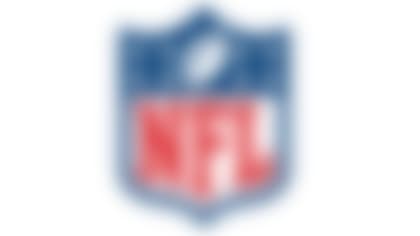I will admit, I am obsessed when it comes to game management in ANY football game. Whether it's a Pop Warner game, or a Division III contest, my antennas are up, and I'm constantly looking for the best way to deal with every situation.
So when an NFL coach, who is paid millions of dollars to give his team "the best chance to win," calls a timeout and needing the ball back with 2:05 on the clock, hence giving the opponent the advantage of running a play before the 2-minute warning, I normally go berserk and start cursing at the television.
Understand, this is not a second-guessing column. As Art Modell, my former boss with the Cleveland Browns, once said to me: "Kid, I am not second-guessing, I am first-guessing."
So take this as my first-guess column. My intentions are not to rip a coach, but rather enlighten readers on how a game should be properly managed.
In the regular-season opener in New Orleans last week, Vikings coach Brad Childress displayed his, shall we say, unique style of game management. Childress learned from Andy Reid, who ranks as my all-time worst game manager (more on the Eagles coach later), so some of the odd things Childress does during a game should not be surprising.
However, calling a timeout on first-and-10 with 2:05 left in the game, giving ever-creative Saints coach Sean Payton the option to run or pass to seal the game, was a huge blunder on Childress' part. It's even worse considering the Saints had converted the previous two third downs with passes. It was an indefensible act.
With just 5 seconds remaining before the two-minute warning, the Saints offense could have utilized its entire playbook. Most plays take 6 seconds to run; if a play is extended, it could take eight. Either way, the first rule in game management is this: Anytime the clock goes below 2:07, never call a timeout. Never. Controlling the play selection is as important as controlling the clock.
In fairness to Childress, a little background here. The Vikings lost their first timeout of the second half when they challenged a play early in the fourth quarter. Childress' challenge was not a terrible one, although from all the TV angles there was never any indisputable evidence that the call would be overturned. Nonetheless, he was standing right in front of the play and his offense needed a spark so he took a calculated chance.
Once Childress lost the challenge and was forced to punt, his next move was to alert every player, especially his captains, that no one was allowed to call a timeout but him. Since the Vikings were trailing, the two timeouts he had left were worth more than any 5-yard delay penalty, and Childress had to exercise his own judgment on when another one was worth calling. Being in position to have a chance to win is the main focus and those timeouts aid the cause.
The Vikings failed to convert on their following possession and were forced to punt with 5:40 to go. They pinned the Saints at the New Orleans 12-yard line, and needed a three-and-out. Taking everything into account, there was no need to start using timeouts right away. The Saints converted two third downs; the last was run with 2:17 on the clock. Had the Vikings called timeout immediately, with 2:09 or even 2:08 left, it would have been the right move. However, they waited until 2:05, thus using the two-minute warning as their second timeout, leaving one for after the break.
It's all sound logic of play-clock counting, but not sound in-play calling logic. The Saints could have thrown caution to the wind, going with a pass knowing the two-minute warning would stop the clock in case of an incompletion anyway.
Had Childress waited until the 2-minute warning, Payton would have had to limit his calls and run the ball inside, not wanting to risk his running back going out of bounds, which in this case, Pierre Thomas did. Ultimately, the Saints ran for a first down rendering the chain of events moot, but had the Vikings stopped the Saints on all three downs, they would have received the ball back with around 1:15 left and no timeouts. Yet, most importantly, the Vikings would have been able to dictate every play call by the Saints.
No doubt, when Childress looked at the tape when he woke up the following day, he could have easily seen that had he called timeout earlier, he would have forced the Saints to run the ball, and put the clock and play selection in his favor. Giving a good play-caller a run-pass option in a tight game, when all the defensive players are playing the run, is not sound football.
The alternative is having less time to score, but in the NFL, anything outside of a minute is plenty of time. The only way to give your team a chance to win is to get the ball back. Bottom line, stop the clock before 2:07, make sure you, as the coach, control the timeouts and, above all else, stop them from running for a first down.
Who did Childress learn his trade under? Reid.
In past seasons, my Twitter and email accounts have bubbled over with comments from Philly fans about Reid -- in part because he never runs the ball, but more about how he wastes his timeouts. This week was no exception. (At some point this season, I will examine the great Reid moments to show that I have not awarded him the title of my all-time worst game manager without data to support my claim.)
Let's go to the game book. The Eagles got to within 27-20 of Green Bay with 5:43 left in the game. The Packers took the field, ran Brandon Jackson left for 4 yards, and the Eagles called timeout. Strange call with that much time on the clock (at this point in the game the Packers remain the sole opponent -- not the clock), but strange is something we have learned to accept in the world of Eagles game management under Reid.
On second down, Jackson rushed for 6 more yards, and Reid called his second timeout. Predictable, yes, but why waste this timeout? With this much time left, as a game manager, you want to make sure your team ties the game with little or no time on the clock to ensure overtime and prevent a powerful Packers offense from getting in position for a winning field goal.
A great game manager must think two moves ahead, and throwing away timeouts when the clock is not the main opponent is careless. Besides, with 5 minutes to go, you might -- albeit unlikely -- get two more chances to tie the game.
Still, it gets better. When the Packers ran Jackson up the middle on first-and-10, the Eagles used their final timeout. So, with 5:11 on the clock, Philadelphia couldn't challenge any call until the two-minute warning, or stop the clock. This put the burden of victory on the defense to stop the Packers and for the offense to score.
Reid went all-in with this timeout, and even though he got the ball back, his careless use of his team's timeouts was another in a long line of interesting Eagles game-management moves. He never gave his team a chance to be in the best position to tie the game, but because the Eagles got the ball back, the role of game management in their 27-20 loss went unnoticed.
At least to most, but not Eagles fans, who have seen this on a infuriatingly consistent basis.
Follow Michael Lombardi on Twitter at @michaelombardi.



